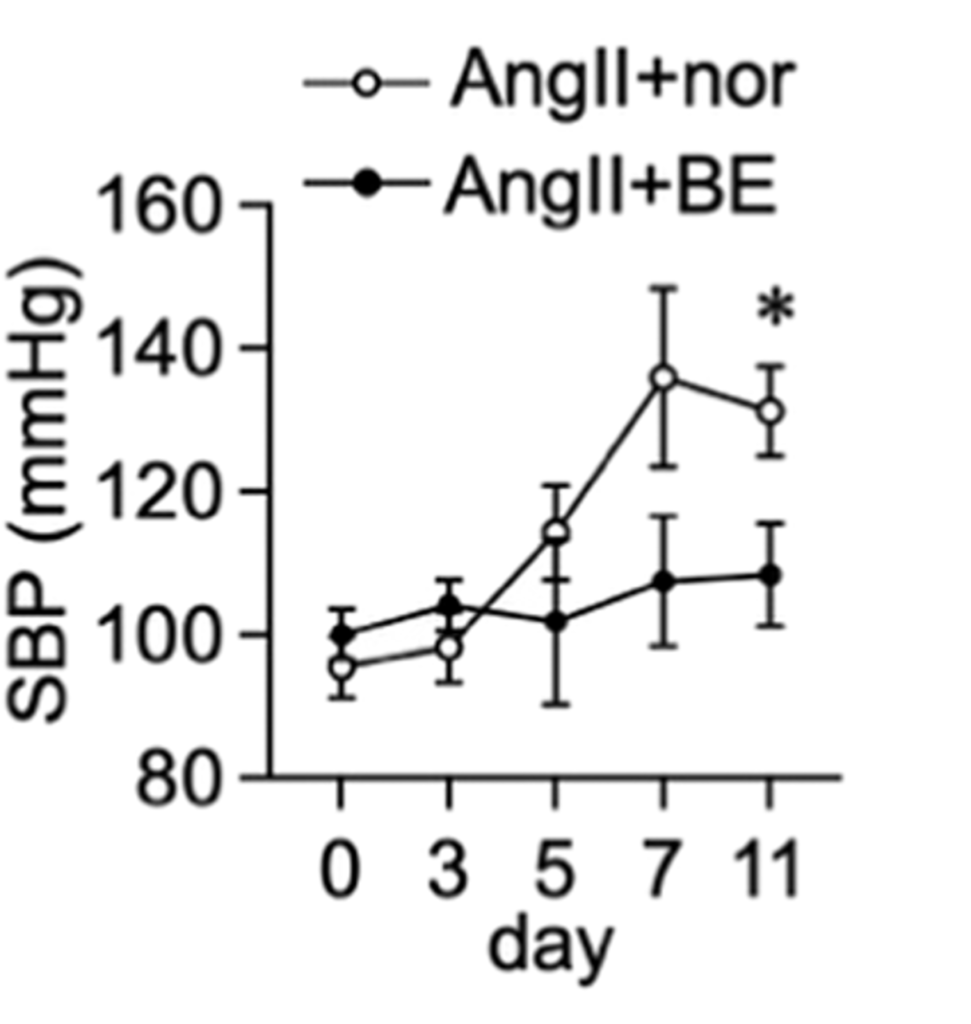New Study Shows Plum Juice Prevents High Blood Pressure and Reverses Blood Vessel Aging
Scientists lower blood pressure and improve blood vessel health with a plum juice concentrate called bainiku-ekisu in a mouse model for hypertension (high blood pressure).
Highlights:
- Drinking bainiku-ekisu (BE) prevents abnormally high blood pressure in hypertensive mice.
- BE prevents blood vessel wall collagen buildup, an indicator of blood vessel deterioration and cardiovascular disease progression.
- Treatment with BE prevents blood vessel wall immune cell infiltration, which promotes inflammation and also contributes to cardiovascular disease progression.
Hypertension is a major risk factor for cardiovascular disease (CVD), including heart attack and stroke, even when blood pressure is lowered by medications. Furthermore, these medications do not address the pathological consequences of hypertension that lead to CVD.
However, Okuno and colleagues from Temple University in Philadelphia report in Hypertension Research that BE counters the pathological consequences of hypertension. Namely, they show that BE prevents the buildup of collagen and the infiltration of immune cells. Furthermore, the Philly-based researchers show that BE prevents high blood pressure.
“It is recognized that drugs alone are not enough to reduce the risk of cardiovascular disease in hypertension patients,” explained Satoru Eguchi, MD, PhD, the study’s Principal Investigator. “To help solve this problem, we became interested in a supplement that could potentially decrease cardiovascular disease risk and began investigating the effects of bainiku-ekisu, an infused juice concentrate of the Japanese plum.”
Bainiku-Ekisu Prevents High Pressure and Counters Blood Vessel Damage
To trigger hypertension, mice were infused with a drug called angiotensin II (AngII), which causes blood vessels to constrict. AngII elevated systolic blood pressure (when the heart contracts) to abnormal levels (above 120 mmHg). However, hypertensive mice that drank BE exhibited normal systolic blood pressure levels (less than 120 mmHg).

(Okuno et al., 2023 | Hypertension Research) Bainiku-Ekisu (BE) Prevents High Blood Pressure. Hypertensive mice (AngII+nor) have a systolic blood pressure (SBP) above 120 mmHg, indicating high blood pressure. However, hypertensive mice treated with BE (AngII+BE) have a SBP within the normal range (below 120 mmHg).
In addition to high blood pressure, the hypertensive mice had increased collagen deposits in their blood vessel walls. Collagen is a protein that replaces dead tissue, resulting in tissue scarring, an indicator of organ and tissue deterioration. Thus, the collagen deposits observed in the hypertensive mice represent blood vessel damage, which was prevented by BE.

(Okuno et al., 2023 | Hypertension Research) Bainiku-Ekisu (BE) Prevents Collagen Buildup. Hypertensive mice (nor, AngII) have high levels of collagen (Col III+ cells ratio) in their blood vessel walls. However, hypertensive mice treated with BE (BE, AngII) have normal levels (nor, sham) of collagen.
There was also an elevated proportion of immune cells observed in the blood vessel walls of the hypertensive mice. To repair injured tissue, the immune system recruits immune cells to the site of damage. However, if the cause of injury persists, such as with chronic high blood pressure, the immune cells remain within the damaged tissue and cause further damage by promoting inflammation. Okuna and colleagues showed that BE prevented this immune cell infiltration.

(Okuno et al., 2023 | Hypertension Research) Bainiku-Ekisu (BE) Prevents Immune Cell Infiltration. Hypertensive mice (nor, AngII) have a high abundance of immune cells (CD45+ cells ratio) in their blood vessel walls. However, hypertensive mice treated with BE (BE, AngII) have normal levels (nor, sham) of immune cells.
“Overall, our findings in the present study strongly support the notion that bainiku-ekisu is an effective new treatment for hypertension and associated vascular remodeling. However, potential reservations about this interpretation are that bainiku-ekisu has not been studied in other animal models of hypertension nor have human studies been conducted,” said the authors.
How to Reap the Potential Benefits of Bainiku-Ekisu
Japanese plum (Prunus mume), called “Ume” in Japanese, is usually pickled or processed due to the toxicity of the raw fruit. Thus, BE is a non-toxic purified form of Ume. Okuno and colleagues recommend about 3 grams of BE per day or a range of 40-50 mg/kg per day. BE can be purchased online in powder form for about $0.80 to $1.70 per 3-gram dose. However, whether BE reduces blood pressure and counters blood vessel damage in humans is unknown.
Model: 8- to 10-week-old male C57BL/6 mice infused with angiotensin II to model hypertension
Dosage (oral): ~171 mg/kg of bainiku-ekisu per day in water

